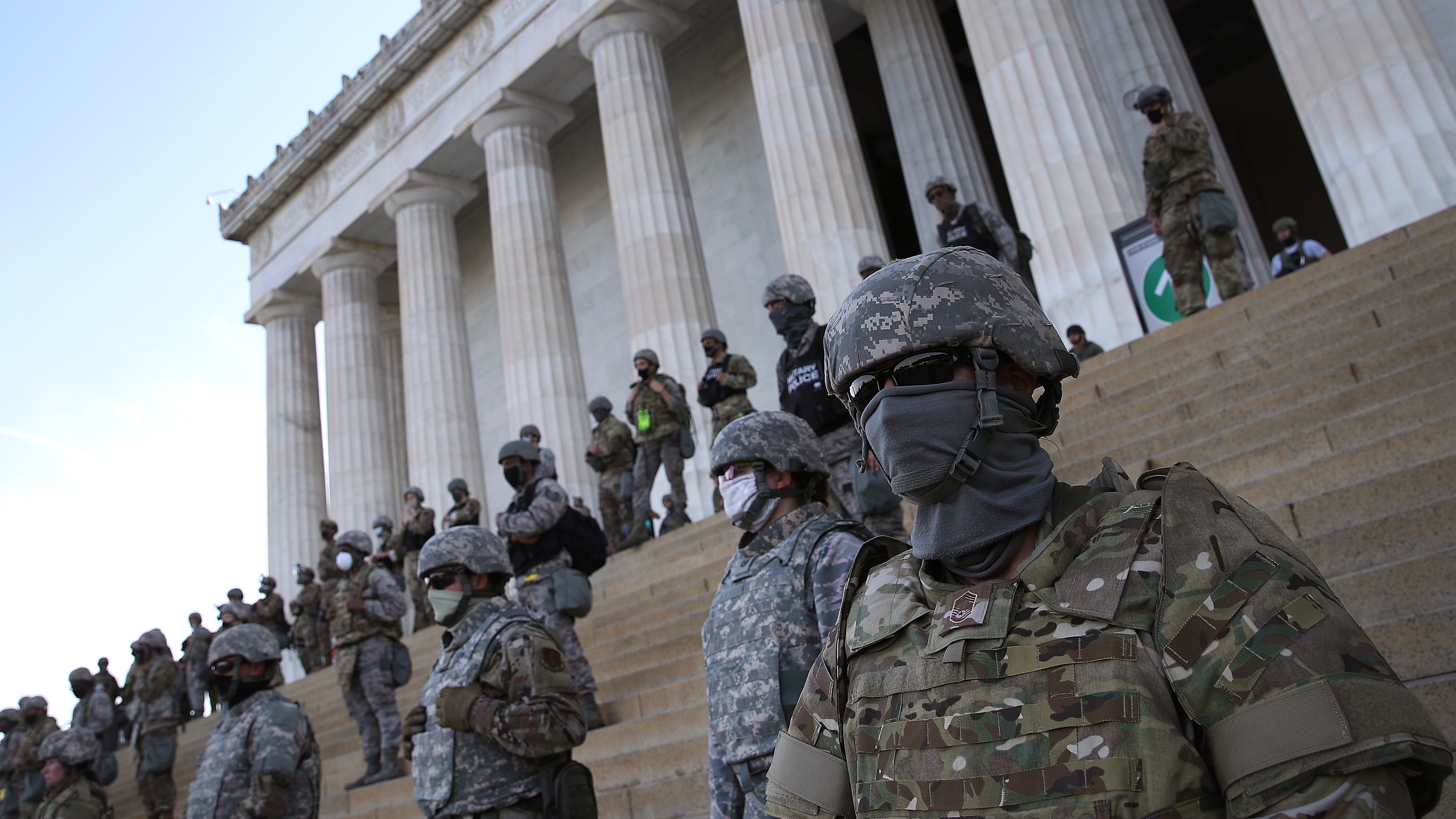Reaction: what can Donald Trump legally do to quell the George Floyd protests?
Former defence secretary James Mattis slams president for use of force against peaceful demonstrators

A free daily email with the biggest news stories of the day – and the best features from TheWeek.com
You are now subscribed
Your newsletter sign-up was successful
Donald Trump has been denounced by his former defence secretary for threatening to deploy “heavily armed” military forces to “dominate the streets” and quell the ongoing race protests.
James Mattis, who quit the Trump administration in 2018, said he was “angry and appalled” by the handling of the nationwide unrest triggered by the police killing of African-American George Floyd.
Mattis told The Atlantic that his former boss was guilty of an “abuse of executive authority”, adding: “Never did I dream that troops... would be ordered under any circumstance to violate the constitutional rights of their fellow citizens.”
The Week
Escape your echo chamber. Get the facts behind the news, plus analysis from multiple perspectives.

Sign up for The Week's Free Newsletters
From our morning news briefing to a weekly Good News Newsletter, get the best of The Week delivered directly to your inbox.
From our morning news briefing to a weekly Good News Newsletter, get the best of The Week delivered directly to your inbox.
What can Trump legally do?
Trump is likely to face serious opposition from within the US security services if he tries to follow through on his threat to deploy troops to act against the citizens taking part in protests across the country. Defence Secretary Mark Esper has already “categorically opposed” such a move, The Guardian reports.
In a televised address to the nation on Monday, the president warned that he would invoke the 1807 Insurrection Act if federal authorities failed “to defend the life and property of their residents”.
But Esper - who “has been supportive of Trump and has avoided contradicting him until now”, notes the newspaper - told journalists in the Pentagon yesterday that “the option to use active-duty forces in a law enforcement role should only be used as a matter of last resort”.
A free daily email with the biggest news stories of the day – and the best features from TheWeek.com
“We are not in one of those situations now. I do not support invoking the Insurrection Act,” he continued.
The act, which dates back to 1807, “gives US presidents the authority to deploy active duty military to maintain or restore peace in times of crisis”, says the History channel website.
As CNN reports, the act was “notably used in the 1950s to enforce desegregation”, and in the following decade “to address riots in Detroit”.
However, “there may be curbs on what Trump can do”, owing to ambiguity in the act, says the broadcaster.
“One section of the law suggests that states must first request help, but other portions of the Insurrection Act do not require a governor or state legislature’s OK, such as when the president determines the situation in a state makes it impossible to enforce US laws or when citizens’ rights are abridged”.
Trump would be unlikely to deploy the military without governors’ approval, according to Michael Brenner, a professor of international affairs at the University of Pittsburgh.
Brenner told the Financial Times that the legislation is “manifestly unconstitutional” and notes that it has “never been tested in courts before”, as governors had always previously supported the use of troops on the ground in their state.
–––––––––––––––––––––––––––––––For a round-up of the most important stories from around the world - and a concise, refreshing and balanced take on the week’s news agenda - try The Week magazine. Start your trial subscription today –––––––––––––––––––––––––––––––
And the reaction?
In a livestreamed video message to the protesters yesterday, former president Barack Obama said that “the young men and women of colour in this country”, have “witnessed too much violence and too much debt, and too often some of that violence has come from folks who were supposed to be serving and protecting you”.
While not directly referring to Trump’s handling of the crisis, Obama also “urged mayors around the country to review their use-of-force policies”.
That message was echoed by former defence chief Mattis, who said that “militarising our response, as we witnessed in Washington D.C., sets up a conflict... between the military and civilian society”, reports the BBC.
Mattis was referring to events earlier this week when peaceful protesters were dispersed with tear gas and rubber bullets so that Trump could walk across a park close to the White House in order to stage a photo op outside a historic church.
However, not everyone is opposed to the deployment of military force. In a controversial opinion piece in The New York Times (NYT), Republican Arkansas senator Tom Cotton has today called on the president to “send in the troops”.
“One thing above all else will restore order to our streets: an overwhelming show of force to disperse, detain and ultimately deter lawbreakers,” Cotton writes. “But local law enforcement in some cities desperately needs back-up, while delusional politicians in other cities refuse to do what’s necessary to uphold the rule of law.”
Cotton’s article has prompted a fierce backlash, with a number of NYT journalists tweeting that “running this puts Black @NYTimes staff in danger”.
Critics have also pointed out that the publication of the piece coincides with the anniversary of the 1989 Tiananmen Square massacre, in which hundreds to thousands of peaceful protesters were killed and thousands wounded when troops were deployed to break up demonstrations in Beijing.